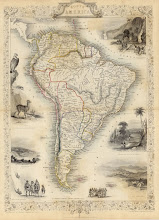
The Geological Society is in a grand building off Piccadilly and I stood among the crowd of Geologists in the library and asked myself "Why am I here?". It is an impressive room filled with leathery smells and oil paintings and it is not a good place to have a personal crisis
In one sense the answer was straightforward - I had come to hear my friend, the academic who took us to Stonehenge, deliver a lecture about the discovery of a hand axe.
In another sense it was more complex. We live in a world where a job is about money and entitlements, absence management and equal opportunities, tasks and objectives, family-friendly working hours and health and safety policies. These are all worthwhile things but none of them are the reason why you work. I know that you might think that money is the reason why you work but if you have ever been really miserable in a job you will know that is not true.
In the library of the Geological Society I realised that I am very fortunate indeed. I am not well paid and I do have to work long hours; there are petty frustrations and there will be difficult times for Higher Education as the budget cuts bite in the years ahead. But somehow, almost by accident, I have ended up in a job that matches my mixed bag of experience and interests.
None of the things that I love about the job feature in my contract - it does not say "You shall eat canapès in the library of the Geological Society" or "You shall make friends who give wonderful lectures about hand axes" or "You shall go out to dinner with a man who studies snails on Tristan da Cunha" or "You shall laugh at risqué jokes about prehistoric bear skeletons". I don't recall them being mentioned in the job advert or the panel interview but these, and countless other similar examples, are the reasons why I go to work every day.
And all this became clear to me in that moment, in the library of the Geological Society - which shows that you never know when inspiration will strike. And then I turned back to the person I was talking to and carried on our conversation about Thor Heyerdal, feeling very grateful for my good fortune.









